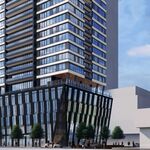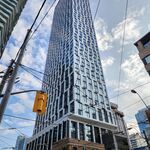Tewder
Senior Member
TBH, Boston is my favourite city in the U.S. and I really don't see it as having much of an Identity apart from the historical connections, but it is a city that is quite enjoyable to be in.
Are you kidding me?
TBH, Boston is my favourite city in the U.S. and I really don't see it as having much of an Identity apart from the historical connections, but it is a city that is quite enjoyable to be in.
I think a big difference is Toronto has very little in the way of 3-6 story apartment complex whereas say Boston and Montreal have a lot of these
Toronto actually has a decent amount to the north (around St. Clair).
Are you kidding me?
Back to the houses for a second, San Fran, Chicago and Boston definitely have a lot of houses close to their core! I'll look for picture support to back that up and get back to you.
Also, it really depends how you define the core. Toronto has a sort of I shaped area with very little in the way of housing. That would be, On Bloor, then straight down Yonge (on both sides a little) then across King W and Kind E (this stretches a little north and south in both directions.
I mean if you're referring to the area north of Bloor, no there are very comparable places in many cities, particular if you consider that Bloor is 3K North of the core per say. But maybe the east and west side of yonge ? Maybe in that sense we do have a little more houses close to the 'core'. More yes but the other cities have some as well.
I think a big difference is Toronto has very little in the way of 3-6 story apartment complex whereas say Boston and Montreal have a lot of these. Toronto actually has a decent amount to the north (around St. Clair).
Regarding the New York comment I didn't mean it in a negative way. New York city has over 8 million people. How can we ever reach that density ? We just won't. Again that's not bad. Maybe we can compare small areas of New York to Toronto. That's fair. I meant on the hole we'll never be that similar
Faire Enough, the area I personally see as the core stretches from Bloor in the north, harbourfont in the south, Bathurst in the West, and the DVP in the East. In this area, there are quite a few places within walking distance to the financial district, an example that comes to mind is Kensington Market area, or even Dundas st West by the AGO. And I'd even go as far as to say that Cabbagetown is walkable? (I'm not too sure, I don't really spend much time in the East end).
Toronto definitely has very little in the way of 3-6 story apartment complex's, and a lot of the 3-6 story apartment complex's that come to the top of my mind are public housing buildings. (think Front st East/ Esplanade Area, I forget the neighbourhood name).
Sorry for taking your New York comment the wrong way, I thought you were suggesting that we should not strive to be the best city because we will never become the best city. I think you make a fair argument to look at unique smaller areas of NY and compare them to Toronto.
I'm not kidding...I actually don't identify Boston with anything other than Historical connections, in this regard I guess it can be seen as a cultural centre, but I think nowadays it's fallen in the backseat when compared to NY, LA, Chicago. What Idenitity would you say it has?
Can you elaborate on this at all ? Not that I disagree with you in the sightless, but I'm curious what set's Toronto apart in your opinion i.e. what makes this a better place to live for you ?
Good lord where to start? I can assure you that outside of the whole historic 'Spirit of America' identity Boston is a city steeped in layers of identity that have little to do with Paul Revere, even if many of these things have long-established roots. At the risk of being trite about this here are some points that come quick to mind when thinking of Boston:
- The regional 'capital' of New England with its 'Yankee' cultural underpinning. This identity is read nationally as well as locally, as the idea of the 'South' would be.
- Two dominant local ethno-cultural identities, the 'Irish Americans' of Southie and 'Italian Americans' of the North End.
- A national political bastion for liberals and the democratic party.
- A national centre for higher learning with the highest concentration of colleges and universities in the USA, including many that are among the most highly respected in the nation (Harvard, MIT etc).
- A rabid sports town, the Red Sox and Bruins.
- A literary and cultural centre for the arts with a number of important institutions.
I could go on and on. Yes, the history of Boston is part of its identity and informs the place as fairly conservative and established, in opposition to the more frontier-type identity that increases as you progress westward across the States. Is Boston the economic powerhouse that NYC and Chicago are? No, but as a smaller regional centre it definitely punches far over its head!
I don't think this city comparison talk has much to do with the intent of the orginal article. I think the author was commenting on increased densities and a shift towards balance of business and residential activity in some areas of the downtown core which previously were more uniform in their land-use. Which is to say "manhattanization" is the shift towards a high-density mixed use land-use with tall buildings that is analogues to how PARTS of the island of Manhattan function today.
I figure those houses have a while yet. The next wave will be heavy redevelopment along the currently low-rise arterials. That U of T residence at College and Spadina is the warning shot. Between those and ongoing brownfield redevelopments we have at least one or two more real estate cycles of development sites.
This is why they are trying to develop the suburban arterials, allowing some relief of space constraints downtown. Even allowing redevelopment where it makes some sense - for example that little pocket west of Grange Park - would cause riots.
I don't think there's anything inherently wrong with keeping lowrise housing stock downtown. Even on Manhattan there are large swaths of (relatively) lowrise areas, including townhouses.




